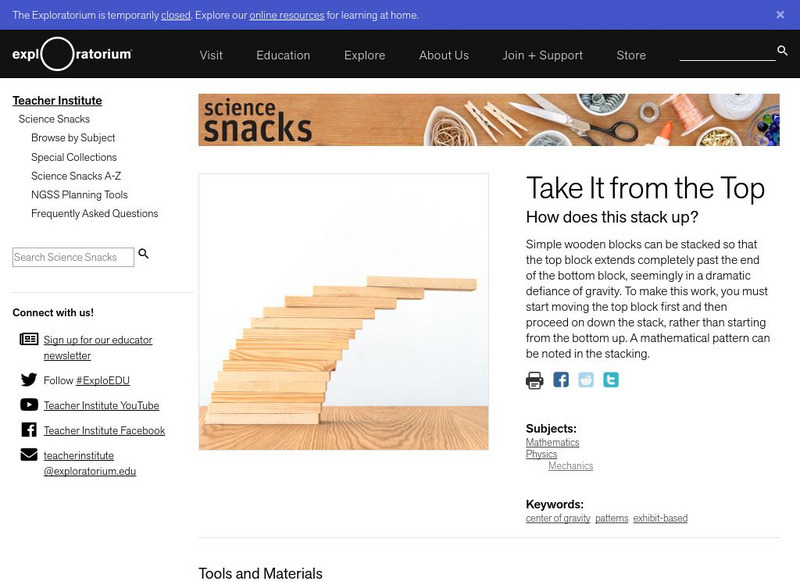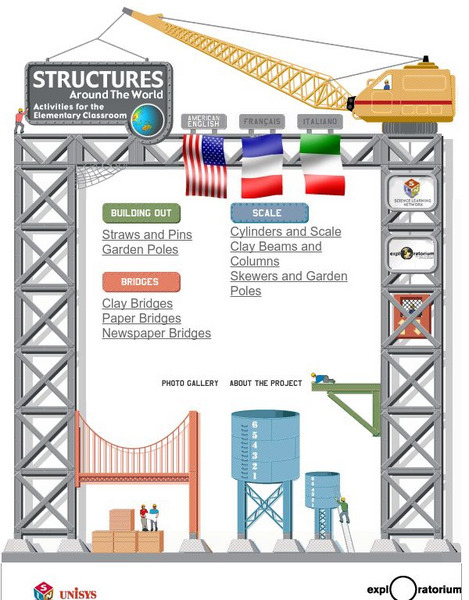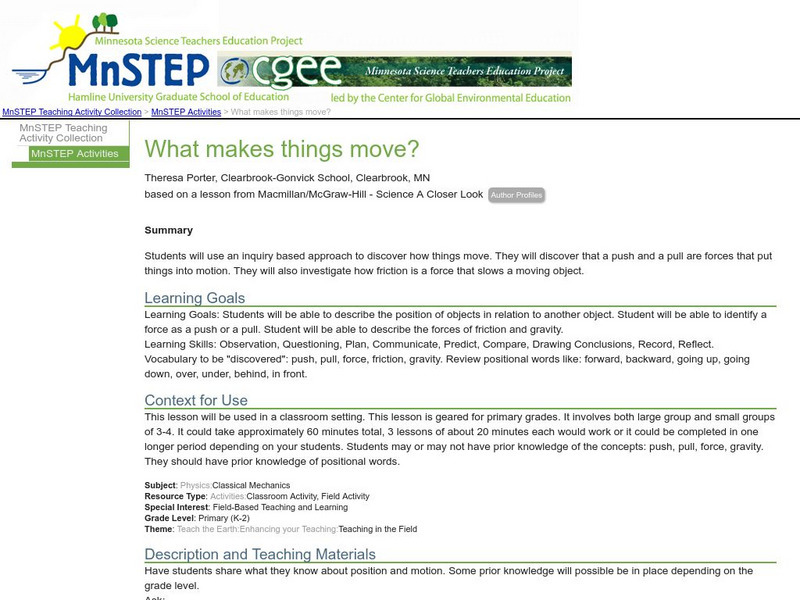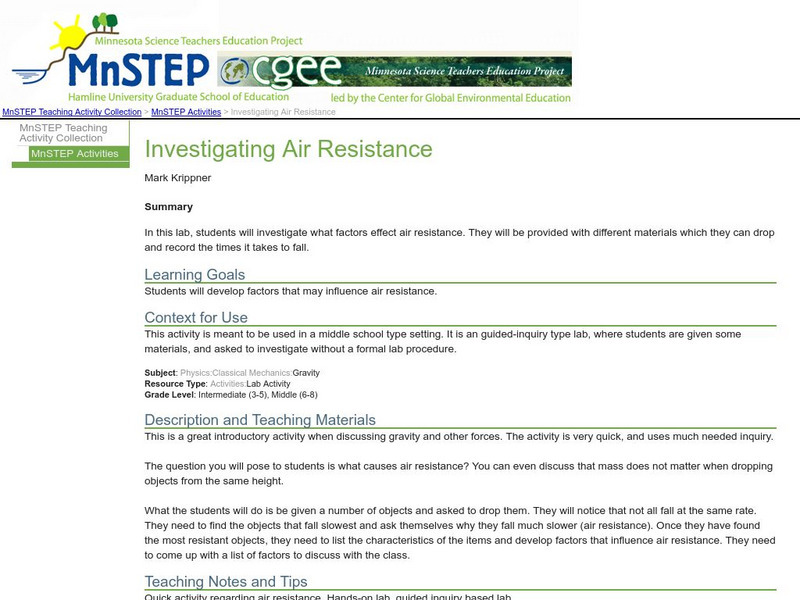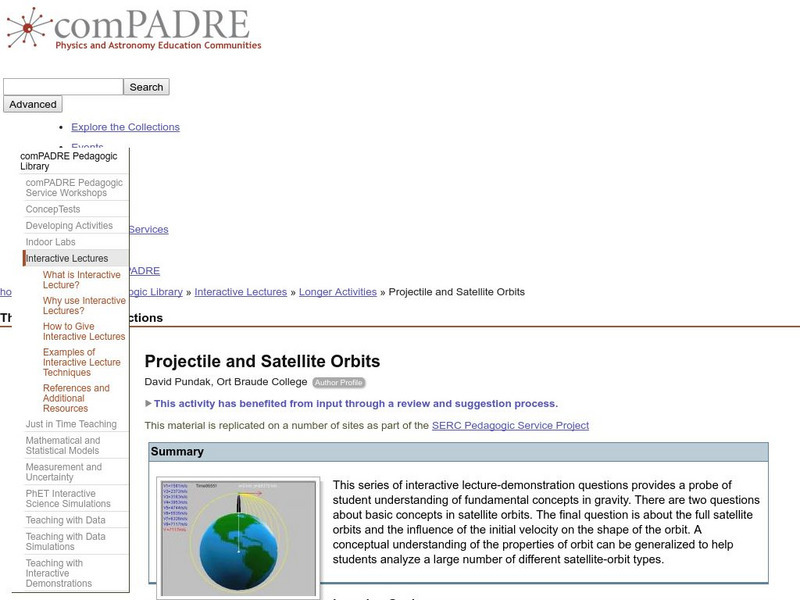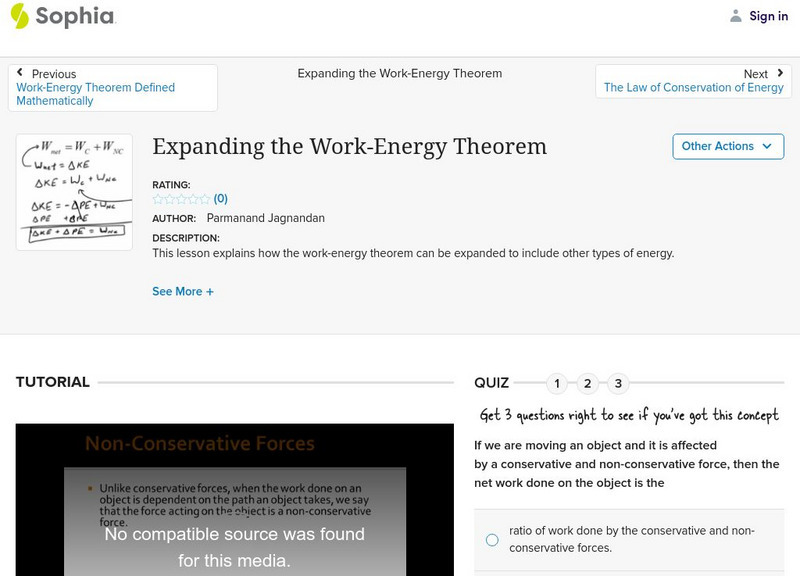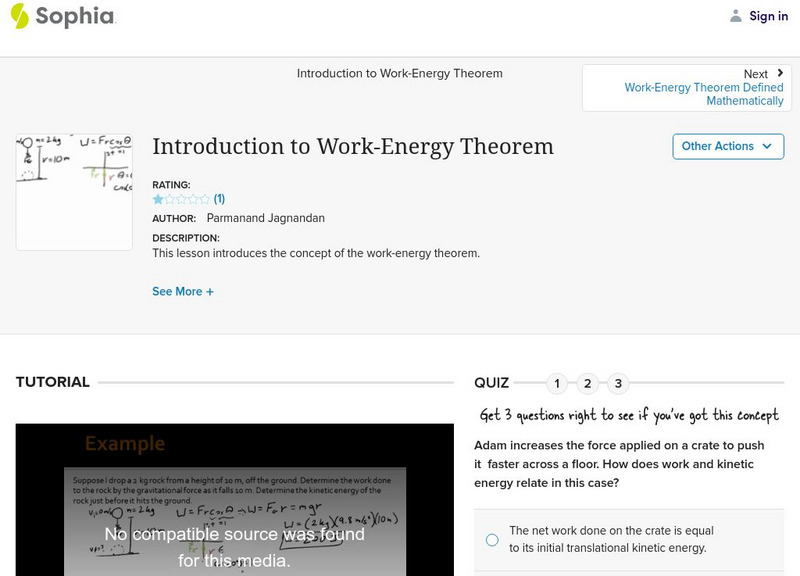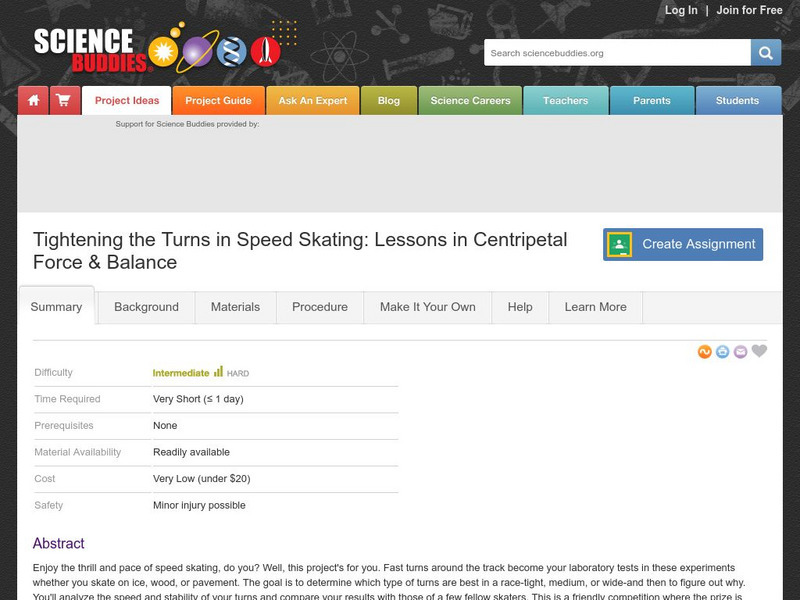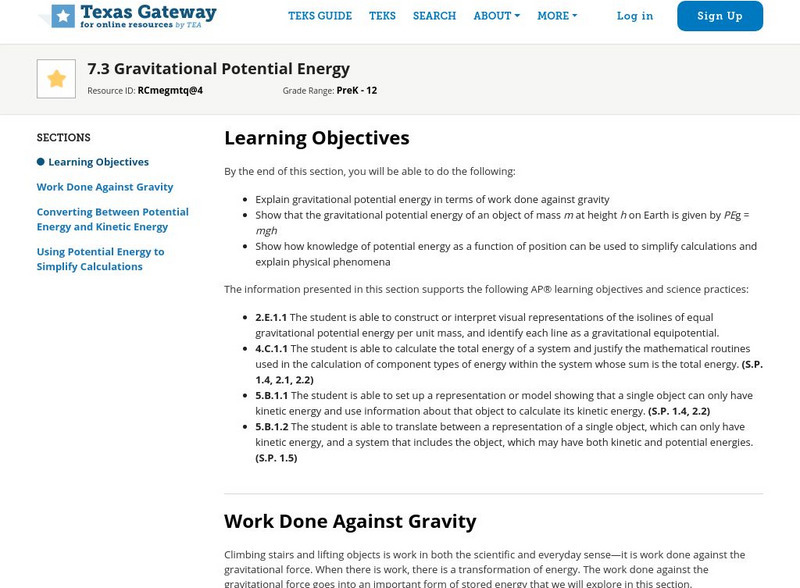BBC
Bbc: Gcse Bitesize: Mass, Weight and Gravitational Field Strength
This lesson focuses on gravitational fields and includes what one is, the formula for gravity force, defining weight, formula for mass, an example of how to calculate gravity force, a practice question, and a link to a test.
Exploratorium
Exploratorium: Science Snacks: Take It From the Top
Students defy gravity by stacking blocks in different ways in this exercise. Other projects are linked to this lesson as well.
Exploratorium
Exploratorium: Structures Around the World
How does that bridge stay up? What are the forces acting on that column? This site helps students understand how structures can be built by having them build their own. Also provides images of real structures for kids to compare with...
Science Education Resource Center at Carleton College
Serc: Mn Step: What Makes Things Move?
In this activity, young scholars will learn about push and pull forces that make things move. They will also practice using position words to describe location. To learn about forces, they will move objects, observe the movement of...
Science Education Resource Center at Carleton College
Serc: Investigating Air Resistance
In this lab, students will investigate what factors affect air resistance while introducing gravity and other forces.
CK-12 Foundation
Ck 12: Kindergarten Science
[Free Registration/Login may be required to access all resource tools.] A science text for kindergarten that covers the weather and gravity.
Other
Center for Education Partnerships: The Marble Roll
In this Science-athon, students try to make their marble roll the farthest across a flat surface, using their knowledge of forces, motion, and energy to guide them through their apparatus design. Teachers must enroll online.
Science Education Resource Center at Carleton College
Serc: Egg Drop
In this physics lab, students build a container to safely deliver two eggs from the top of the school. Students calculate average velocity, acceleration, momentum, and the amount of force as it hits the ground. If their egg breaks, they...
BBC
Bbc: Gcse Bitesize: The Life Cycle of a Star
This lesson focuses on the formation and life cycle of stars. Stars form when enough dust and gas clump together because of gravitational forces. Nuclear reactions release energy to keep the star hot. Some stars grow larger over time....
PBS
Pbs Learning Media: Defying Gravity
Students are asked how acceleration, mass, momentum and velocity are involved in mountain boarding. [0:32]
Wikimedia
Wikipedia: The Black Hole
This site examines the black hole as an object in astrophysics. Delve into this comprehensive resource that covers this concept from its history, to qualitative physics, the reality of black holes, mathematical physics and more.
Science Education Resource Center at Carleton College
Serc: Marble Stop
In this two-part instructional activity, young scholars will discover that no matter what the shape of the track, the marble will rise to the same vertical height. They will begin to understand the concepts of gravity, motion, and force.
Science Education Resource Center at Carleton College
Serc: Projectile and Satellite Orbits
This activity introduces gravity and Kepler's Laws and helps to develop an understanding of gravitational force, satellite orbits, and their dependence on the initial velocity.
Open Curriculum
Open Curriculum: The Nonmechanical Universe
Students learn about the fields of force and gravity in this illustrated article.
Physics Classroom
The Physics Classroom: Circular and Satellite Motion: The Value of G Interactive
Students investigate how the force of gravity varies with location on Earth. They are challenged to find the pattern in their findings.
American Association of Physics Teachers
Com Padre Digital Library: Open Source Physics: Sliding Down an Incline Plane
Here is a simulation demonstrating an object placed on an inclined plane. The user will vary the slope of the plane to see the relationship the slope has on the gravity of the object and the static friction.
Physics Aviary
Physics Aviary: Practice Problems: Spring Stretch on Other Planet
Students must find the value of the amount of stretch that will occur to a spring on another planet.
Physics Classroom
The Physics Classroom: Mathematics of Satellite Motion
The mathematics associated with the motion of satellites is described. Equations (for period, velocity, acceleration and force) are stated, symbols described, and sample problems solved. Includes five practice problems with solutions and...
Science and Mathematics Initiative for Learning Enhancement (SMILE)
Smile: Center of Gravity Lab
This Illinois Institute of Technologysite provides a lab activity in which students find the center of gravity of a box which has nonuniform weight distribution. Complete with directions and discussion questions; answers provided.
Sophia Learning
Sophia: Expanding the Work Energy Theorem
A narrated tutorial which illustrates how the work-energy theorem can be expanded to include other kinds of energy. [10:07]
Sophia Learning
Sophia: Introduction to Work Energy Theorem
Watch this screencast to understand the work-energy theorem in regards to energy. [8:45]
PBS
Pbs Learning Media: Why Doesn't the Moon Fall Down?
In this animated video segment adapted from NASA, astronomer Doris Daou explains how the forces of speed and gravity keep the moon in a constant orbit around Earth. [1:36]
Science Buddies
Science Buddies: Tightening the Turns in Speed Skating
Fast turns around the track can become your laboratory tests in these experiments, whether you skate on ice, wood, or pavement. The goal is to determine which type of turns are best in a race - tight, medium, or wide - and then to figure...
Texas Education Agency
Texas Gateway: Ap Physics: Gravitational Potential Energy
By the end of this section, you will be able to explain gravitational potential energy in terms of work done against gravity, show that the gravitational potential energy of an object of mass m at height h on Earth is given by PEg = mgh,...

